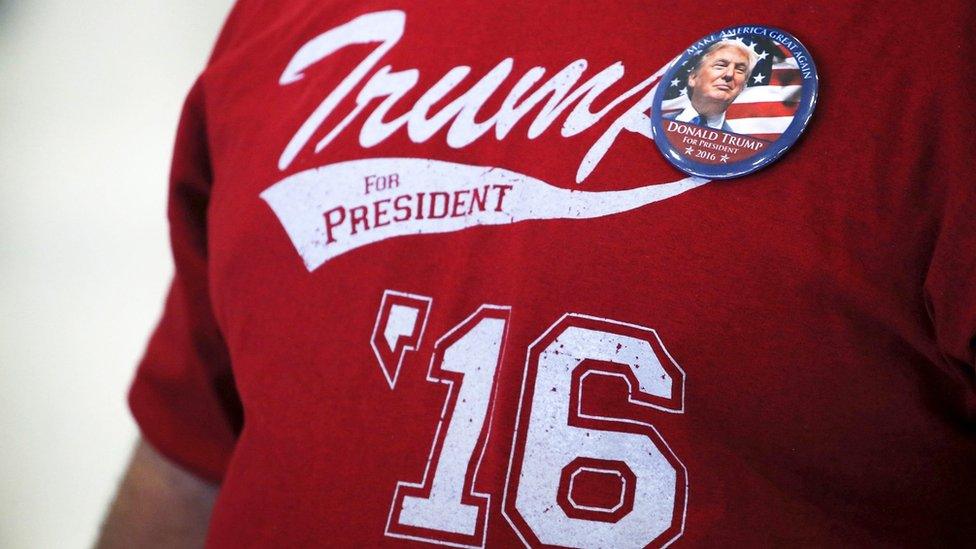The Trump effect: Young Republicans weigh in
- Published

Depending on whom your ask, Donald Trump is either the saviour of the Republican Party, or a harbinger of its demise.
The businessman-turned-politician will be the first to tell you that he has brought millions of people out to the polls during this fiercely contested primary season. And it is true that more people voted in this year's primary and caucus season than in any other year.
But his detractors will point out that he only really became a Republican during this campaign, and has supported Democratic candidates in the past.
As the presumptive nominee, Mr Trump is in many ways the group's new standard-bearer. And while his base is widely considered to come from middle-age, middle-class whites, many young and urban Republicans are also coming to terms with a Trump-branded Republican party.
So what do these voters think about what's happened to the party of Lincoln and Reagan?

The Trump Supporter
The Trump Effect: The vilified supporter living in New York City
To say Donald Trump is a divisive figure on the American political scene would be a Manhattan-size understatement.
In a recent poll, 67% of American said they had an unfavourable view of the Republican frontrunner, but among Republicans, a majority see him in a positive light.
Trump supporter Dylan Perera says he faces a hostile climate.
The engineering student tells the BBC's Barbara Plett-Usher that those who sympathise with the provocative billionaire fear a backlash, physical or otherwise.

The Young Republicans
The young Republicans frustrated by Trump
Meanwhile at the Ken & Cook bar on Manhattan's Lower East Side, three young Republicans describe 2016 as a lost opportunity for their party - a year for the Republicans to change their image with young voters, maybe even became "cool".
With two leading candidates in their 40s - Senators Ted Cruz and Marco Rubio - and another generation rising up the ranks, there was hope that a similar groundswell of support that swept Barack Obama into office eight years ago would play out on the Republican side.
That was not to be. Instead, young voters were energised by the campaign of 74-year-old Democrat Bernie Sanders and these three Republicans fear the party has missed the boat on attracting voters like them.

The Strategist
"Millennials need to have a voice in the GOP"
Much like in advertising, attracting young voters - like consumers - is a long-term goal for both major political parties.
Shoring up support among the 93 million millennials in the United States (aged roughly from 19-32) should be a top priority for the Republican party.
They are the voting bloc that will influence American politics for the decades to come.
Republican strategist Lauren Culbertson tells the BBC why millennials are concerned about the success of Donald Trump, and why young adults need to have a larger voice in the party if it is to survive.
Produced by: Suzanne Kianpour, Barbara Plett-Usher & Mat Morrison.
Edited by Olivia Lace-Evans. Filmed by Ian Cartwright.